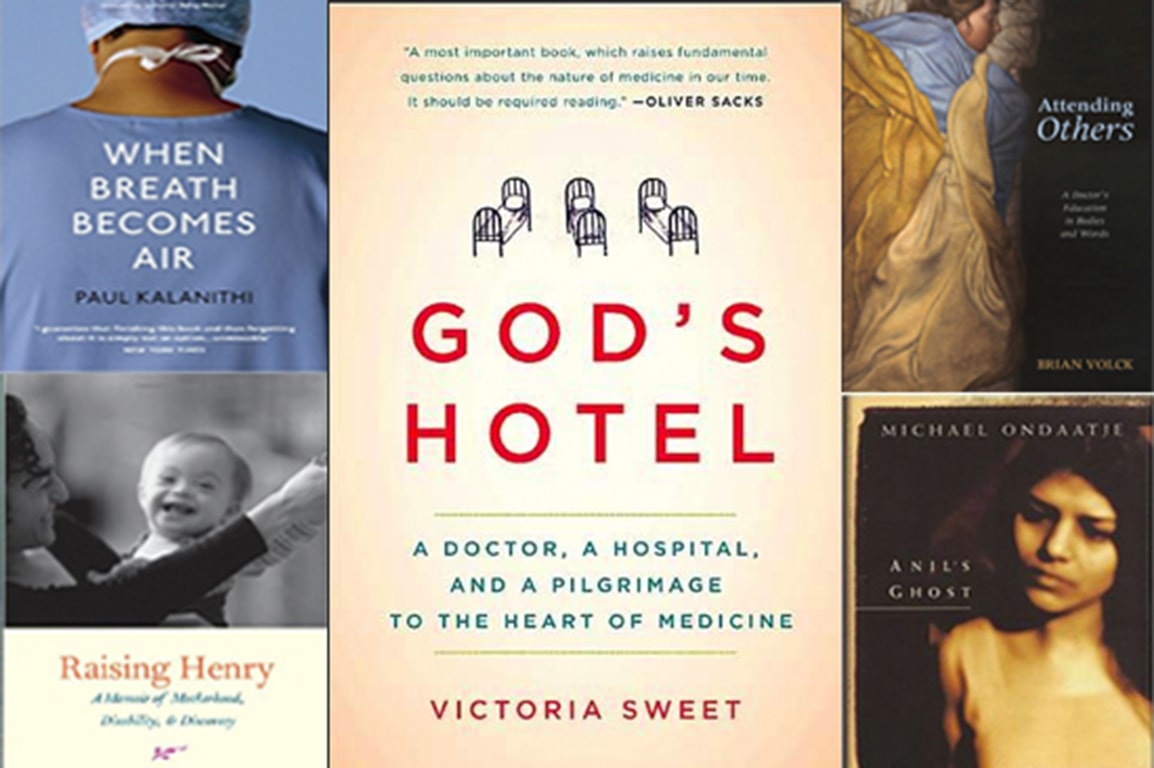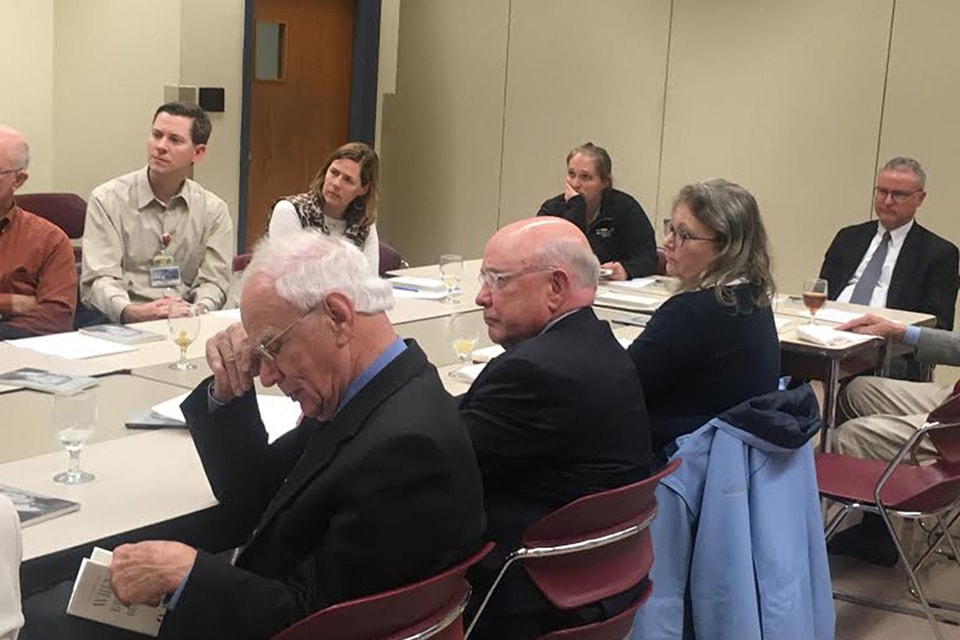SLU Faculty Reflect on ‘When Breath Becomes Air’
On a recent fall evening, a classroom at the Learning Resources Center began to fill up as faculty members filtered in, greeting each other warmly, filling plates with pasta, sausage and chocolate from the Italian dinner buffet set up at the side of the room and chatting eagerly about a book: When Breath Becomes Air, by Paul Kalanithi, M.D.
Ten years ago, Patrick McCarthy, associate dean of University libraries and director of the Medical Center library, and Sara van den Berg, Ph.D., professor of English and a medical humanities scholar, launched “Literature and Medicine: Humanities at the Heart of Health Care.”
The program aims to provide SLU physicians, researchers and other health care professionals with an opportunity to meet monthly over dinner to explore the vocation of medicine and health care through the illuminating lens of literature.
After dinner, the conversation began in earnest. The group was there to reflect on the book by the talented young neurosurgeon who was diagnosed, just before he finished his training, with stage four lung cancer. Kalanithi, who also had been a student of literature, decided to dedicate his remaining time to writing a book about his experience as a patient and his reflections on what makes life matter.
Published after his death, the book is a look at the experience of dying through the eyes of a doctor, familiar with the world of medicine, but facing all of the challenges of mortality. The story grapples with life, death, work, loss of control and religion.
As the doctors, nurses, physical therapists, public health professors and others in the room discussed the book, they shared their reactions to the story. They noted that doctors aren’t immune to the impulse to deny illness and mortality, described how they would want to be involved in their own care, told stories about their own illnesses and offered accounts of their volunteer work with hospice care. And they marveled at the author’s beautiful turns of phrase as he described his day-to-day experiences.
“The Literature and Medicine program enables a creative exchange of ideas about healing others with care and dignity,” McCarthy said. “The program has filled to capacity each year the same day it is offered, with a lottery system used for selection and an always full waiting list.”
McCarthy is struck by the positive response he’s had to the program. In a recent survey, participants described the program as a highlight of their year and remarked that it shapes how they think and interact with students and patients.
One commenter said: “Thank you for this wonderful program. It has truly been a much appreciated gift in the Ignatian spirit of the magis. A reminder that here at SLU we have companions on this journey of serving the sick and promoting the glory of God through the care of his people ... all His people.”
As a result of the Literature and Medicine program, I’m convinced that I listen more carefully to my patients. I’m more aware of the human condition and the struggles my patients are enduring. I am now a more caring individual and a better physician."
Raymond G. Slavin, M.D., professor emeritus in internal medicine
Underwritten by the SLU Library Associates and donor funding, the Literature and Medicine program is open to all health care practitioners and researchers at the SLU Medical Center.
In addition to When Breath Becomes Air, the group also has read Michael Ondaatje’s Anil's Ghost and Rachel Adams’s Raising Henry. Next, they’ll read Brian Volck’s Attending Others, Victoria Sweet’s God’s Hotel and Elie Wiesel’s Open Heart.
As the evening wrapped up, the faces around the table were cheerful, despite the immensely sad subject matter. The group had been thoughtful and engaged as they talked about bearing witness to meaningful lives and meaningful deaths, the immeasurable value of connection with others and the ultimately hopeful endeavor of health care.
This year a School of Medicine alumni Literature and Medicine group is being created for the first time, as well. The program is designed to encourage the exploration of the challenges and rewards of being a doctor and provide supportive environment for candid and thoughtful discussion among colleagues. A new book will be chosen each quarter and then discussed in-person with other School of Medicine alumni.
The program is still enrolling. School of Medicine alumni who are interested in participating can contact Elizabeth Wikoff at 314-623-6191 or wikoffe@slu.edu, or sign up directly at alumni.slu.edu/litandmed.



















